
Find Help
More Items From Ergsy search
-
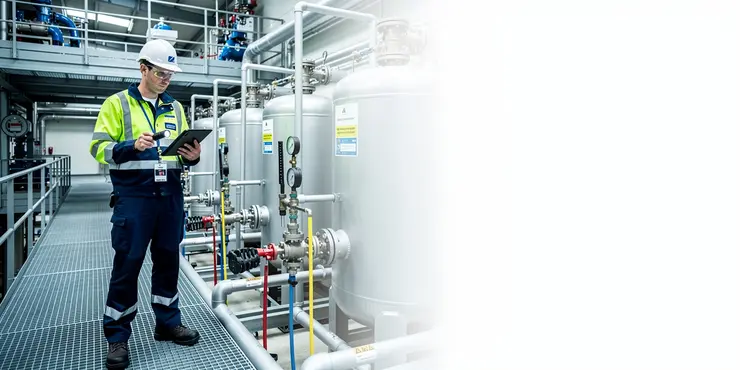
Are water companies responsible for maintaining water infrastructure in the UK?
Relevance: 100%
-

Do water companies have to update the infrastructure?
Relevance: 97%
-
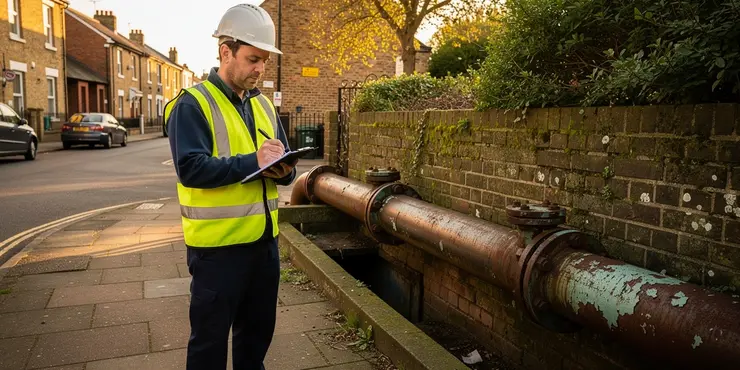
Are water companies responsible to maintain and update infrastructure in the UK?
Relevance: 94%
-

How do water companies fund infrastructure updates?
Relevance: 94%
-
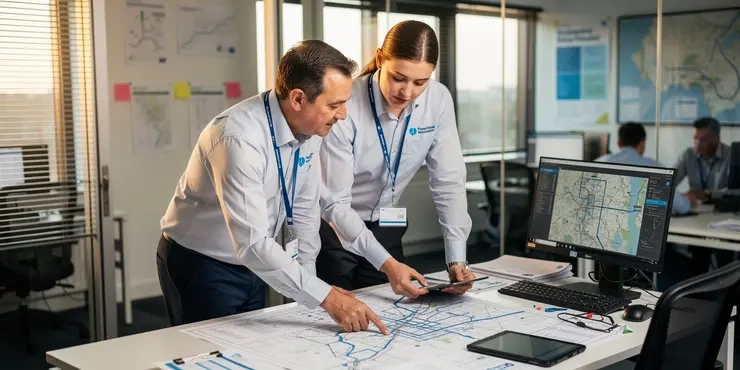
Do water companies have long-term infrastructure plans?
Relevance: 93%
-

How are infrastructure priorities determined by water companies?
Relevance: 92%
-

How transparent are water companies regarding infrastructure improvements?
Relevance: 89%
-
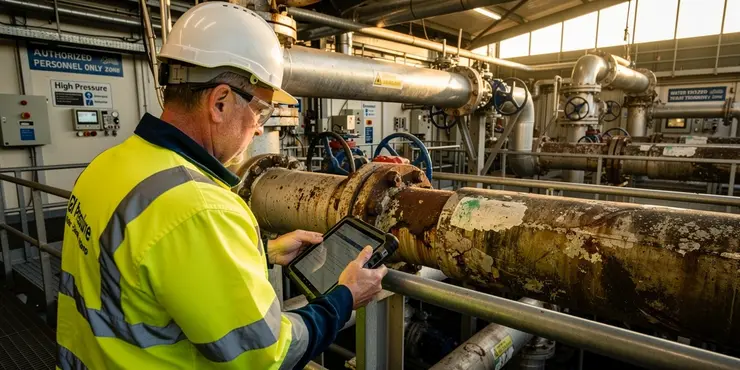
What challenges do water companies face in maintaining infrastructure?
Relevance: 88%
-

Are there penalties for not maintaining water infrastructure?
Relevance: 79%
-

How old is the water infrastructure in the UK?
Relevance: 77%
-

How much water is lost in the UK through poor infrastructure?
Relevance: 73%
-

Are there initiatives to improve water efficiency in infrastructure?
Relevance: 70%
-

Can customers report issues with water infrastructure?
Relevance: 69%
-
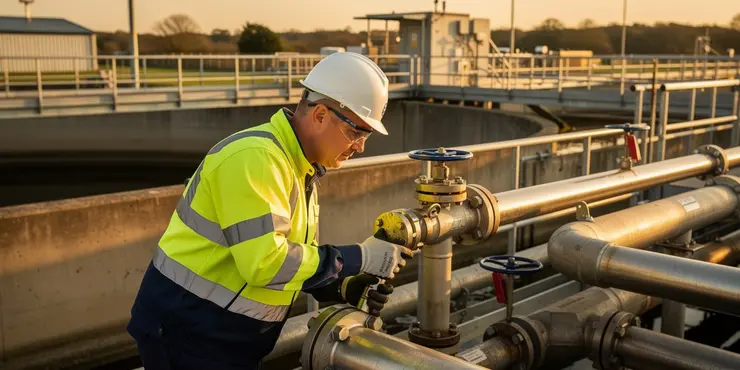
What role do water companies play in sewage pollution?
Relevance: 69%
-
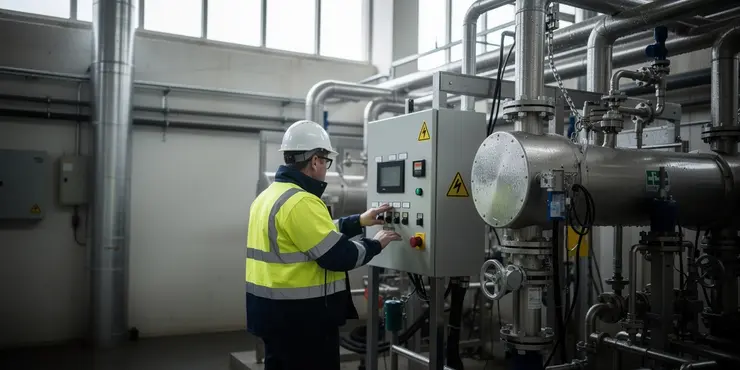
What does water infrastructure maintenance involve?
Relevance: 68%
-

How are water companies held accountable for infrastructure maintenance?
Relevance: 66%
-
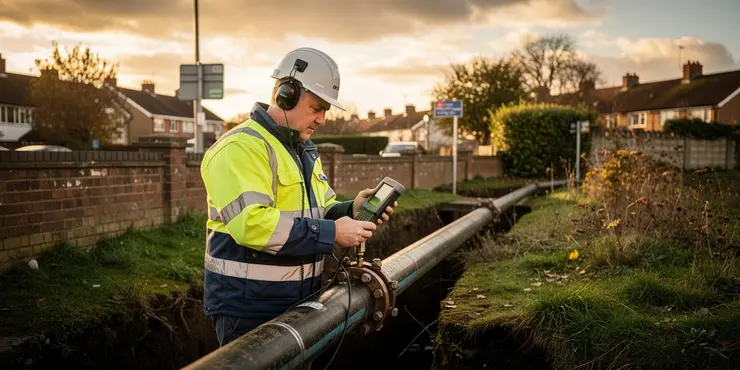
How do water companies detect leaks?
Relevance: 65%
-
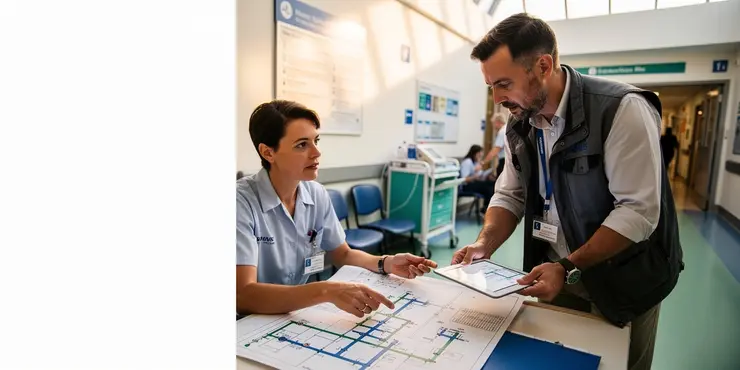
How will refunds affect investments towards improving water infrastructure?
Relevance: 64%
-
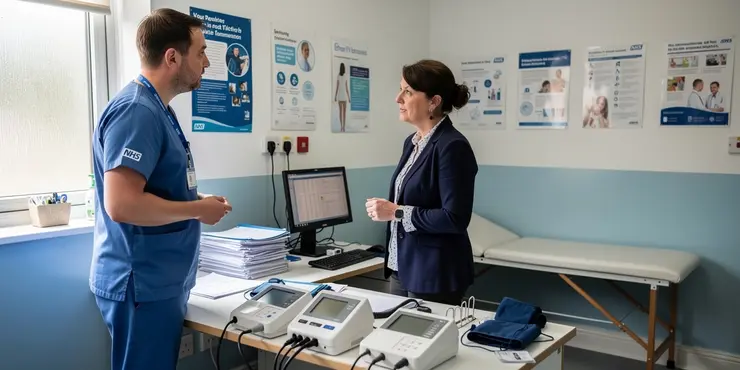
Which UK water companies are going to refund their customers for poor performance?
Relevance: 64%
-

Are there penalties for water companies besides issuing refunds?
Relevance: 62%
-

Which UK water companies are going to refund their customers?
Relevance: 61%
-

Who regulates the performance and compliance of UK water companies?
Relevance: 61%
-

How does climate change affect water infrastructure maintenance?
Relevance: 61%
-

Do these refunds mean water companies have increased their rates fraudulently?
Relevance: 60%
-

When will the refunds be issued by the UK water companies?
Relevance: 59%
-
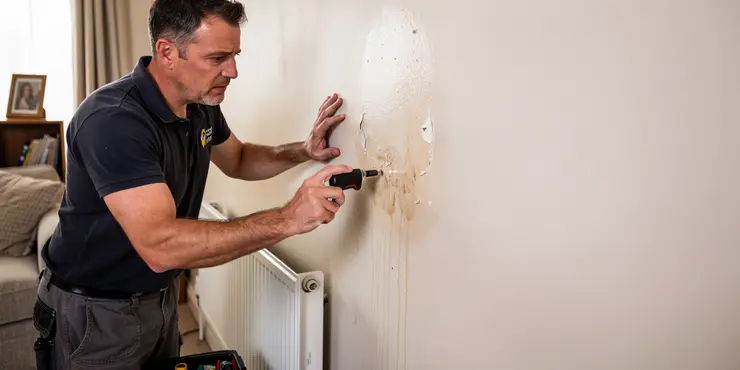
What are common signs of leaks in water infrastructure?
Relevance: 57%
-

Which body is responsible for enforcing refunds by UK water companies?
Relevance: 57%
-

Can water companies enter my property to enforce a hosepipe ban?
Relevance: 57%
-

How much is being refunded in total by the UK water companies?
Relevance: 56%
-

What criteria were used to determine the refunds for UK water companies?
Relevance: 56%
-

What are the financial implications of water loss for the UK?
Relevance: 54%
-

How many UK water companies are involved in the refund process?
Relevance: 54%
-

What measures are being taken to address water loss in the UK?
Relevance: 54%
-

Are customers responsible for any part of the water infrastructure?
Relevance: 54%
-

What can I do if the water company doesn’t respond to my claim?
Relevance: 54%
-

Where can customers find updates on their water company's performance standards?
Relevance: 54%
-

Are there any government initiatives to tackle water loss in the UK?
Relevance: 53%
-

Can customers appeal or discuss the refund amount with their water company?
Relevance: 52%
-

How can I claim money back from my water company?
Relevance: 51%
-

What is the first step to claim money back from my water company?
Relevance: 51%
Introduction
In the United Kingdom, water companies play a crucial role in supplying clean and safe water to households and industries. The infrastructure that supports this supply, including pipes, treatment facilities, and reservoirs, is an essential component of the water distribution system. With growing concerns about climate change, population growth, and resource management, the question arises whether water companies are obligated to update their infrastructure regularly.
Regulatory Requirements
Water companies in the UK operate under a heavily regulated framework to ensure that they provide a reliable and safe supply of water. The Water Services Regulation Authority, commonly known as Ofwat, is the economic regulator responsible for the water sector in England and Wales. Ofwat oversees how these companies invest in infrastructure maintenance and upgrades. Every five years, water companies must submit a business plan to Ofwat, outlining their investment strategies, including plans for infrastructure updates.
Drivers for Infrastructure Upgrades
Several factors drive the need for water companies to update their infrastructure. The aging infrastructure comprises many pipes and facilities that have been in use for decades, resulting in leaks, inefficiencies, and potential service disruptions. Furthermore, climate change is causing more frequent extreme weather events such as floods and droughts, putting additional pressure on existing systems. Population growth also demands increased capacity to meet rising water consumption levels, prompting companies to enhance their infrastructure to avoid shortages.
Funding and Investment
Water companies fund infrastructure upgrades through a combination of customer bills and investment returns. Ofwat sets limits on how much companies can charge their customers, balancing the need for infrastructure investment with affordability for consumers. These financial regulations are designed to protect consumers while ensuring that water companies have the resources necessary to maintain and improve their services.
Challenges and Criticisms
Despite regulatory requirements and investment opportunities, water companies face significant challenges in upgrading their infrastructure. These include the high costs associated with modernizing the network, the complexity of coordinating large-scale projects, and the need to minimize service disruptions during upgrades. Moreover, there is public criticism that some water companies prioritize shareholder profits over infrastructure improvements, leading to debates about the effectiveness of the current regulatory framework in incentivizing necessary upgrades.
Conclusion
In summary, water companies in the UK are obligated to update their infrastructure to ensure a reliable supply of water while adapting to environmental changes and societal demands. Regulatory bodies like Ofwat enforce compliance with these obligations, although challenges and criticisms remain. Ongoing investment and strategic planning are essential for maintaining and enhancing the water infrastructure to meet future needs.
Introduction
In the UK, water companies have an important job. They make sure we have clean and safe water at home and for businesses. To do this, they use things like pipes, treatment plants, and storage places for water. These are all very important parts of getting water to us. Because the weather is changing, and there are more people, we need to think about whether these companies should keep improving their equipment.
Rules They Follow
Water companies in the UK have to follow many rules. This is to make sure they give us water that is safe and always there when we need it. Ofwat is the group that checks up on these water companies in England and Wales. They look at how water companies spend money to keep their equipment working well. Every five years, these companies have to show Ofwat their plans for fixing and upgrading their equipment.
Why They Need Upgrades
There are many reasons why water companies need to fix their equipment. A lot of the pipes and tools they use are very old. This can cause leaks and problems. The weather is also changing, with more floods and dry spells, which puts extra pressure on the water systems. More people are living in the UK now, which means we need more water. So, companies have to upgrade their tools to make sure we don’t run out of water.
Paying for Fixes
Water companies get money to fix things from the bills people pay and other investments. Ofwat decides how much money companies can charge their customers. They try to make sure that fixing things isn’t too expensive but still happens when needed. This helps water companies keep things running well without costing people too much money.
Problems and Complaints
Even with rules and money to help, water companies have a tough time fixing and upgrading things. Fixing everything is expensive. It’s also hard to manage big projects without interrupting water service. Some people are unhappy because they think these companies care more about making money for their owners than fixing and improving things. This causes arguments about whether the rules really help improve things.
Conclusion
In short, water companies in the UK need to update their equipment to keep giving us water. They also need to deal with changes in weather and more people. Ofwat makes sure they follow the rules to do this. Even though there are problems, it’s important for these companies to plan well and invest money so they can fix and upgrade their equipment for the future.
Frequently Asked Questions
Do water companies have a legal obligation to update infrastructure?
Water companies often have a regulatory obligation to maintain and update their infrastructure to ensure reliable service and compliance with safety standards.
How often do water companies update their infrastructure?
The frequency of updates can vary depending on the age of the infrastructure, regulatory requirements, and company policies, but regular maintenance and updates are typically part of ongoing operations.
What factors influence the decision to update water infrastructure?
Factors include the age and condition of the infrastructure, population growth, new regulations, technological advancements, and financial considerations.
Who finances water infrastructure updates?
Funding can come from a combination of customer rates, government grants, and loans, or through private investment if the water company is privately owned.
Why is it important to update water infrastructure?
Updating infrastructure is crucial to ensure the safe and reliable delivery of water, minimize leaks and losses, and meet current and future demand.
What are the signs that water infrastructure needs updating?
Signs can include frequent service disruptions, leaks, water quality issues, and outdated technology or materials.
How do water companies prioritize which infrastructure to update?
Priority is often given to infrastructure posing the greatest risk to public health and safety, based on assessments of condition, age, and criticality.
Are customers informed about infrastructure updates?
Yes, water companies typically inform the public about significant infrastructure updates that may affect service through notices or public meetings.
Can new technology improve water infrastructure efficiency?
Yes, technologies such as smart meters, advanced leak detection, and automated control systems can greatly enhance infrastructure efficiency.
Is aging infrastructure a problem worldwide?
Yes, aging water infrastructure is a global challenge, requiring significant investment for upgrades and modernization in many regions.
How has climate change impacted water infrastructure needs?
Climate change has increased the need to upgrade infrastructure to handle more extreme weather, prevent flooding, and ensure water supply resilience.
What role do governments play in water infrastructure updates?
Governments can provide regulations, funding, oversight, and support for research and development in water infrastructure improvements.
How do infrastructure updates affect water billing for consumers?
Infrastructure updates can lead to temporary increases in water bills to cover the costs of improvements, but can also result in long-term savings and efficiencies.
Are there any environmental benefits to updating water infrastructure?
Yes, updates can reduce water loss, improve energy efficiency, and decrease the environmental footprint of water and wastewater systems.
Do water companies collaborate with other utilities in infrastructure updates?
Often, yes. Collaboration can occur with other utilities, municipal services, and stakeholders to optimize resource use and minimize disruption.
What are the challenges faced in updating water infrastructure?
Challenges include securing funding, regulatory hurdles, technical complexities, and minimizing disruption to existing services during upgrades.
Can outdated water infrastructure affect water quality?
Yes, aging infrastructure can lead to contamination and water quality issues if not properly maintained or updated in a timely manner.
How do infrastructure upgrades improve water service reliability?
Upgrades can reduce service interruptions, enhance system resilience, and ensure consistent supply despite external challenges.
What is the expected lifespan of water infrastructure before updates are needed?
The lifespan can vary widely, with pipes lasting from 15 to over 100 years, depending on material, usage, and conditions; regular assessment is essential.
Do water companies invest in research and development for infrastructure innovations?
Yes, many water companies invest in R&D to explore new materials, technologies, and methods for more efficient and sustainable infrastructure.
Do water companies have to fix and update pipes by law?
Water companies must keep their pipes and taps in good condition. They do this to make sure we get clean water and stay safe.
How often do water companies fix or improve their pipes and systems?
How often things get updated can change. It depends on how old the equipment is, what rules are in place, and company decisions. But usually, taking care of things and updating them happens all the time.
Supportive tools or techniques: Use simple planning tools like calendars to keep track of updates. Ask for help or reminders from a friend or family member if needed.
What makes us change water pipes and systems?
Here are some reasons why we might need to change water pipes and systems:
- Old Pipes: When pipes get old, they can break or leak.
- More People: If more people move to an area, we need bigger systems.
- Save Water: New systems can help save water.
- Better Technology: Sometimes, new technology can make water systems work better.
- Safety: We need to make sure the water is clean and safe to drink.
Helpful tips: Using pictures or videos can help understand how water systems work.
There are a few things to think about:
- How old and how good are the roads and buildings?
- Are more people moving in?
- Are there new rules to follow?
- Are there new inventions or tools?
- How much money is there to spend?
Using pictures or videos can help you understand better. Reading with a friend or using audiobook versions can also be helpful.
Who pays for water system improvements?
Money to pay for water comes from different places. It can come from the people who use the water, the government giving money, or from borrowing money. If a private company owns the water, it might get money from people who invest in it.
If you need help understanding, you can use tools like picture aids or ask for help from someone you trust.
Why do we need to fix and change water pipes and systems?
It is important to keep water clean and safe for everyone to use.
Old pipes can break and can make our water dirty.
Fixing and changing pipes helps us have clean, healthy water at home and at school.
It also helps save water so we don’t waste it.
You can use pictures or videos to learn more about water systems.
Fixing and improving pipes and pumps is very important. It keeps water running safely, stops leaks, and makes sure we have enough water now and later.
How can we tell when water systems need fixing?
Here are some signs to watch for:
- Water stops working a lot.
- There are leaks.
- The water isn’t clean.
- Old pipes and equipment.
To help understand, use pictures or ask someone who knows about plumbing to explain.
How do water companies decide what to fix first?
Water companies sometimes need to fix or update things like pipes and water tanks. But they can't do it all at once.
This is how they decide what to work on first:
- Check for Problems: They see which pipes or tanks have the most issues.
- Look at Safety: They make sure water is clean and safe for everyone.
- Think About Cost: They check how much each fix will cost.
- Plan for the Future: They think about what will be needed in the years to come.
Support Tools:
- Use pictures or videos to understand more about water systems.
- Ask someone to explain if you are not sure.
It's important to fix things that might be dangerous first. We focus on roads and buildings that could cause the most harm to people. We check how old they are, what shape they’re in, and how important they are.
Do we tell customers about changes to our systems?
Yes, water companies usually tell people about big changes to pipes and systems. These changes might change your water service. They tell you through letters or meetings.
To help understand this better, you can:
- Ask a family member or friend to explain.
- Use a calendar to mark the dates of these changes.
- Attend the meetings if you can.
Can New Technology Help Water Systems Work Better?
Yes, there are new tools like smart meters, special leak finders, and machines that run things by themselves. These tools help make things work better.
Is old infrastructure a problem everywhere?
Does the stuff we build, like roads and bridges, get old and cause trouble all over the world?
- Tools: Use pictures or videos to help understand.
- Techniques: Talk with someone about it to make it clearer.
Yes, old water systems are a problem all over the world. Many places need to spend a lot of money to fix and update them.
How has climate change changed what we need for water systems?
Climate change is making weather different. This means we need to change how we get and use water. Here’s how:
- More Droughts: Less rain means we need better ways to save water.
- Floods: Heavy rain can cause floods. We need strong pipes and drains.
- Hotter Weather: We need cool places for storing water.
Tools like pictures and apps can help people learn more about these changes. It's important to plan and make sure we have enough water for everyone.
Climate change is making the weather more extreme. This means we need to make buildings and roads stronger. We want to stop floods and make sure we always have enough water.
How do governments help fix and improve water systems?
Governments can make rules, give money, check on projects, and help with building better water systems.
How do changes to pipes and roads change water bills for people?
Fixing and improving water pipes and systems can make water bills go up for a little while to pay for the work. But, in the future, these improvements can help save money and make everything work better.
Does fixing water pipes help the environment?
Yes, making updates can help save water, use less energy, and be kinder to the environment. This can help keep water systems running better.
Do water companies work together with other utilities to improve services?
Yes, working together happens a lot. Different groups like utility services, city workers, and other important people can team up. This helps them use resources better and helps everyone work without getting in the way of each other.
What problems do we face when fixing water systems?
Water systems give us clean water. But sometimes, they can break or get old. Fixing them is important, but it can be hard.
Here are some problems we might have:
- Cost: Fixing water systems can be very expensive.
- Time: It can take a long time to finish the work.
- Old pipes: Many pipes are old and need to be replaced.
- Planning: We need to plan carefully so everyone has water during the work.
- Technology: New technology can be hard to use at first.
If you find reading hard, you can ask someone to read with you. Listening to the information while following along can help too.
There are some problems, like getting money, following rules, dealing with tricky things, and making sure there are no big problems when making things better.
Can old water pipes make water dirty?
Yes, when pipes and buildings get old, they can make our water dirty. It's important to fix or change them in time to keep water clean.
How do upgrades make water service better?
When we fix and improve things like pipes and pumps, it helps water get to our homes easily. This means we have clean water whenever we need it. Upgrades make sure there are fewer breaks or leaks, so water keeps flowing well.
Tools and Tips: - Pictures of pipes and water systems can help explain. - Videos showing how water moves can make it clearer. - Simple words and short sentences are best.
Upgrades can help stop problems, make systems stronger, and keep things working even when there are challenges outside.
How long can water pipes and systems last before they need fixing or changing?
Pipes can last a long or a short time. Some pipes last 15 years. Some pipes last over 100 years. How long they last depends on a few things: what they are made of, how we use them, and the conditions they are in. Checking your pipes often is very important.
Do water companies spend money to find new and better ways to build things?
Yes, many water companies spend time and money to find new ways to improve. They look for better materials and smart ideas to make water systems work well and be good for the planet.
To help understand this, you can use pictures or diagrams. Reading with a friend or using audiobooks can also make learning easier.
Useful Links
This website offers general information and is not a substitute for professional advice.
Always seek guidance from qualified professionals.
If you have any medical concerns or need urgent help, contact a healthcare professional or emergency services immediately.
Some of this content was generated with AI assistance. We’ve done our best to keep it accurate, helpful, and human-friendly.
- Ergsy carfully checks the information in the videos we provide here.
- Videos shown by Youtube after a video has completed, have NOT been reviewed by ERGSY.
- To view, click the arrow in centre of video.
- Most of the videos you find here will have subtitles and/or closed captions available.
- You may need to turn these on, and choose your preferred language.
- Go to the video you'd like to watch.
- If closed captions (CC) are available, settings will be visible on the bottom right of the video player.
- To turn on Captions, click settings .
- To turn off Captions, click settings again.
More Items From Ergsy search
-

Are water companies responsible for maintaining water infrastructure in the UK?
Relevance: 100%
-

Do water companies have to update the infrastructure?
Relevance: 97%
-

Are water companies responsible to maintain and update infrastructure in the UK?
Relevance: 94%
-

How do water companies fund infrastructure updates?
Relevance: 94%
-

Do water companies have long-term infrastructure plans?
Relevance: 93%
-

How are infrastructure priorities determined by water companies?
Relevance: 92%
-

How transparent are water companies regarding infrastructure improvements?
Relevance: 89%
-

What challenges do water companies face in maintaining infrastructure?
Relevance: 88%
-

Are there penalties for not maintaining water infrastructure?
Relevance: 79%
-

How old is the water infrastructure in the UK?
Relevance: 77%
-

How much water is lost in the UK through poor infrastructure?
Relevance: 73%
-

Are there initiatives to improve water efficiency in infrastructure?
Relevance: 70%
-

Can customers report issues with water infrastructure?
Relevance: 69%
-

What role do water companies play in sewage pollution?
Relevance: 69%
-

What does water infrastructure maintenance involve?
Relevance: 68%
-

How are water companies held accountable for infrastructure maintenance?
Relevance: 66%
-

How do water companies detect leaks?
Relevance: 65%
-

How will refunds affect investments towards improving water infrastructure?
Relevance: 64%
-

Which UK water companies are going to refund their customers for poor performance?
Relevance: 64%
-

Are there penalties for water companies besides issuing refunds?
Relevance: 62%
-

Which UK water companies are going to refund their customers?
Relevance: 61%
-

Who regulates the performance and compliance of UK water companies?
Relevance: 61%
-

How does climate change affect water infrastructure maintenance?
Relevance: 61%
-

Do these refunds mean water companies have increased their rates fraudulently?
Relevance: 60%
-

When will the refunds be issued by the UK water companies?
Relevance: 59%
-

What are common signs of leaks in water infrastructure?
Relevance: 57%
-

Which body is responsible for enforcing refunds by UK water companies?
Relevance: 57%
-

Can water companies enter my property to enforce a hosepipe ban?
Relevance: 57%
-

How much is being refunded in total by the UK water companies?
Relevance: 56%
-

What criteria were used to determine the refunds for UK water companies?
Relevance: 56%
-

What are the financial implications of water loss for the UK?
Relevance: 54%
-

How many UK water companies are involved in the refund process?
Relevance: 54%
-

What measures are being taken to address water loss in the UK?
Relevance: 54%
-

Are customers responsible for any part of the water infrastructure?
Relevance: 54%
-

What can I do if the water company doesn’t respond to my claim?
Relevance: 54%
-

Where can customers find updates on their water company's performance standards?
Relevance: 54%
-

Are there any government initiatives to tackle water loss in the UK?
Relevance: 53%
-

Can customers appeal or discuss the refund amount with their water company?
Relevance: 52%
-

How can I claim money back from my water company?
Relevance: 51%
-

What is the first step to claim money back from my water company?
Relevance: 51%


